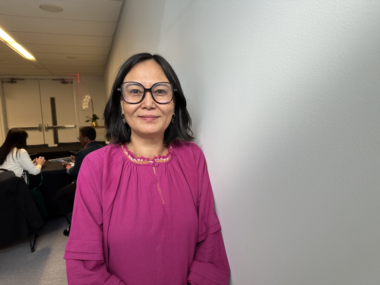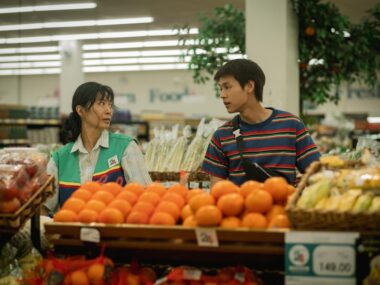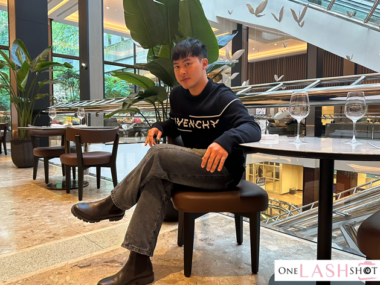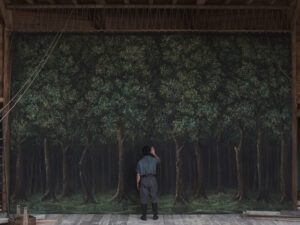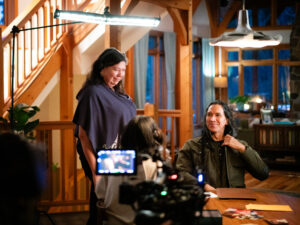Taiwanese director Chieh Shueh Bin first made waves in 2009 with a poignant series of short documentaries capturing the devastating floods of Typhoon Morakot. Before stepping into the director’s chair for television, he honed his craft behind the scenes as an editor and assistant director. Five years after charming audiences with his debut feature—a breezy romantic drama titled Do You Love Me As I Love You (2020)—Chieh returns with a starkly different vision: a gripping neo-noir revenge thriller that dives deep into darkness and vengeance.
Organ Child follows Chang Chi-Mao (Hsiao-chuan Chang), a baseball coach whose infant daughter (Moon Lee) goes missing and who is falsely accused of murder. After prison, he seeks revenge on a powerful criminal group, uncovering police corruption and a law system that protects the rich.
One Lash Shot had the opportunity to talk to Director Chieh Shueh Bin, exploring themes of wealth disparity and the fragile threads of humanity woven through the shadowy world of Organ Child.
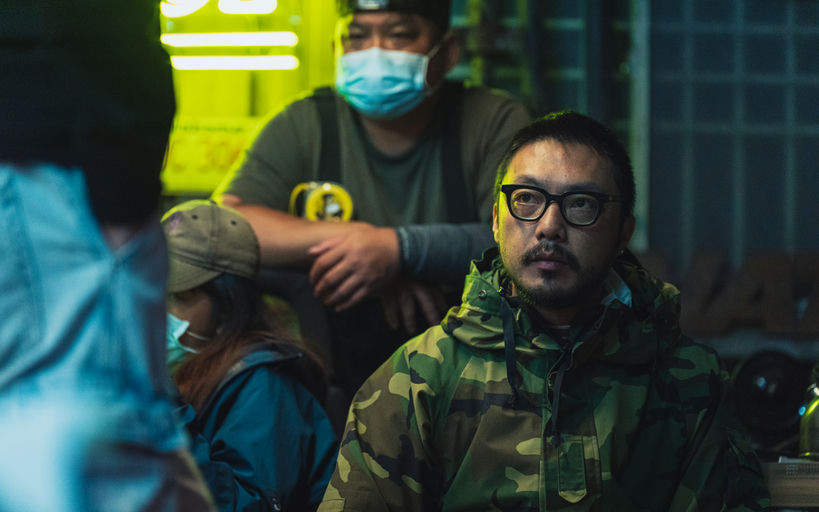
What made you become a director in the first place?
I started in the film industry in 2009, and it just so happened that during that year, there was a very serious typhoon called Typhoon Morakot, which caused significant damage across Taiwan.
By chance, I began collaborating with a team of documentary filmmakers. We visited many of the areas affected by the typhoon and its aftermath, and that’s how I got started. That experience marked my entry into the industry—initially through documentary work, then moving on to screenwriting, and eventually becoming a director.
The film opens with a montage depicting various people being tortured, which is quite a departure from your previous romcom, Do You Love Me as I Love You. What inspired such a drastic shift in genre?
I believe that both films—despite being in different genres—are projects I truly want to make. They’re very different, but that doesn’t mean they can’t both be part of my repertoire. As a director, I see it as my responsibility to explore different subjects and strive to be the best storyteller I can be, especially when telling stories rooted in Taiwan.
At this stage in my career, I don’t feel I have either the ability or the luxury to define myself by just one genre. So naturally, exploring different types of genre films is part of the journey—it comes with the territory.
You divided the movie into four chapters: Guilt, Crime, Sin, Atonement. How did you come up with that?
The four-chapter structure was designed specifically to suit the nature of this film, which has a very complex narrative, multiple storylines, and a large ensemble of characters. We spent about two years in post-production to shape the story and its characters in a way that would be as clear and accessible as possible for the audience, despite its layered complexity.
In the end, I chose to present the story as a feature film, divided into four distinct chapters. Each chapter centers on the male lead, and that focus was the key reason behind this structural choice. While each chapter explores different elements, they all maintain the perspective of the main character.
What was the casting process like for Joseph Chang, Moon Lee and singer/rapper Shou?
Joseph Chang and Moon Lee are two actors I’ve wanted to work with for a long time. About two years ago, they played a father and daughter in a well-known TV series. So, for Organ Child, when casting a father-daughter duo, I thought of them immediately. Although the context in this film is completely different from the series they were in, their pairing brings a sense of familiarity while also offering something new and unique for the audience. That’s why I chose them for these roles.
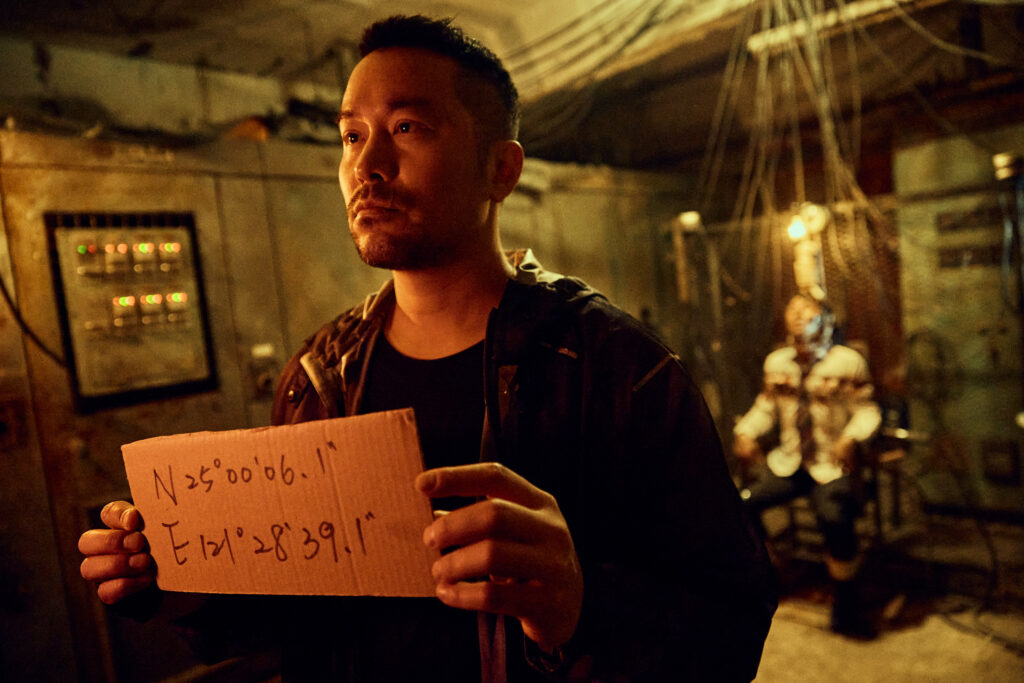
As for casting the rapper Shou, that decision was also part of a broader strategy—thinking about how to attract audiences to theaters. A big part of that involves casting well-known names, not just traditional actors but also popular figures like rappers and singers. I believe having someone like Shou in the film adds value and helps draw more viewers to the cinema. That’s the reason he was brought into the project as well.
The film seems to explore moments of tension and discomfort. How did you use camera work, lighting, or sound to amplify these feelings for the audience?
The character of the father engages in a lot of unspeakable acts—many of which take place underground. His relentless drive for revenge is central to the story, and I knew that the film’s locations had to reflect that intensity and darkness.
This idea of carrying out unspeakable acts in hidden, underground spaces influenced our location scouting process. We searched for places that were quite literally underground—spaces that evoke a strong sense of unease, places that ordinary or rational people would never willingly enter. These locations naturally conveyed the feeling of being part of society’s underbelly—where something horrific or secretive is bound to happen.
The spaces themselves already had an unsettling atmosphere, even before any cinematic elements were added. So, when we layered in lighting, sound design, and cinematography, that tension was amplified even further. The goal was to create a visceral sense of anxiety and discomfort in the viewer, particularly during scenes involving violent interrogation or torture. All these elements worked together to deliver the emotional impact I intended—immersing the audience in a world that feels raw, oppressive, and emotionally charged.
You mentioned it was an underground location—could you share where exactly the shoot took place?
Yes, one of the main locations we used was an abandoned textile factory. It served as a key setting for the film. Within the space, you’ll see various corners featuring different elements—like old electrical boxes and even sections that resemble power substations. It’s essentially a decaying ruin located in the suburbs of Taipei, and its atmosphere perfectly matched the tone and themes we wanted to convey.
Organ Child raises questions about medical ethics, family, and sacrifice. What kind of impact do you hope the film will have on audiences, both in terms of entertainment and reflection?
I think the Chinese title of the film, Qi Zi, carries a lot of meaning. If you look at the female lead, she was abducted as an infant—taken when she was just three months old—and from that point on, she was objectified and dehumanized, treated like a tool rather than a person. Her entire life has been built on a lie.
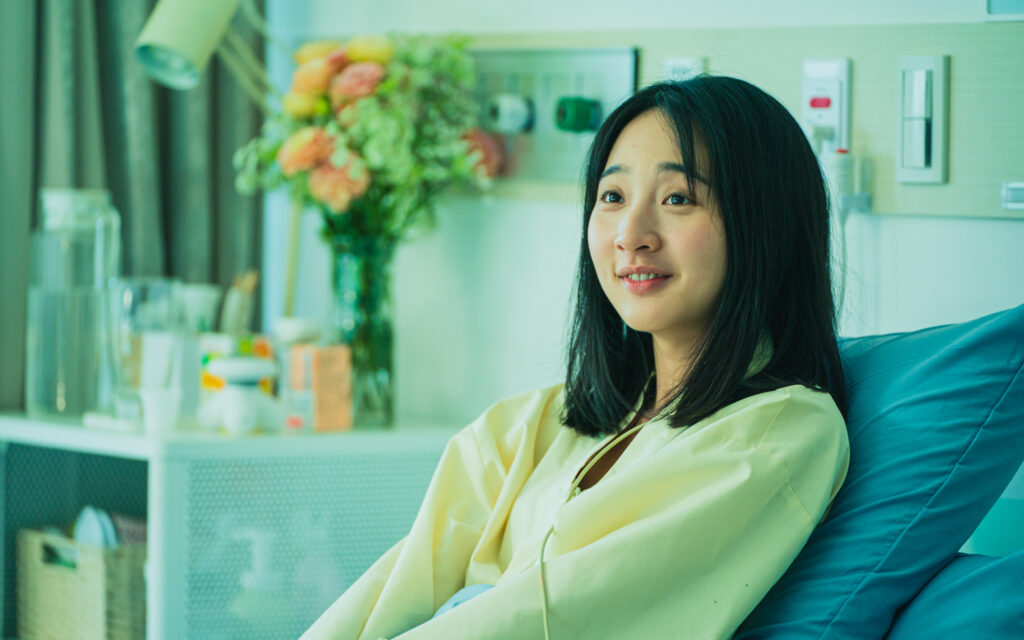
Through her story, I wanted to explore broader societal issues—such as the stark wealth disparity and the question of justice in a system that is inherently unfair. The film asks: how can one seek justice when the very structures in place are rigged against them? And ultimately, it raises a fundamental question about humanity—how can we ensure that people are treated as human beings, not as objects or tools used to serve the interests of the powerful?
Do incidents like this actually happen in Taiwan?
The story is fictional and imagined; it’s not directly based on any specific real-life crime cases in Taiwan. However, in terms of organ trade, there are reports and documented instances of such activities happening around the world. It is a serious issue that does occur, and I believe it’s important for us to be aware of and pay attention to.
How did you approach the end of the story?
The ending might not be what audiences hope for, but it was something we discussed extensively—especially with Joseph Chang—about how to conclude the film and the fate of his character. After a long conversation, we agreed that this was the best way for the character to find peace.
On one hand, he has accomplished everything he set out to do as a father. On the other hand, facing the full consequences of the violence, bloodshed, and unspeakable acts committed during his quest for revenge would be incredibly challenging. So, for us, this ending felt fitting: the character fulfills his mission without having to confront legal repercussions, and he achieves spiritual and emotional reconciliation with his daughter.
If you had to describe this movie’s theme in one word, what would it be?
Love.
What’s next for you? Do you see yourself continuing to explore themes of human rights, health, or morality in future projects?
For my next project, I’m planning to make a horror film. We’ve completed pre-production and will begin shooting in Taiwan this September.
[Author’s Note: Thank you! I look forward to watching your upcoming film!]
